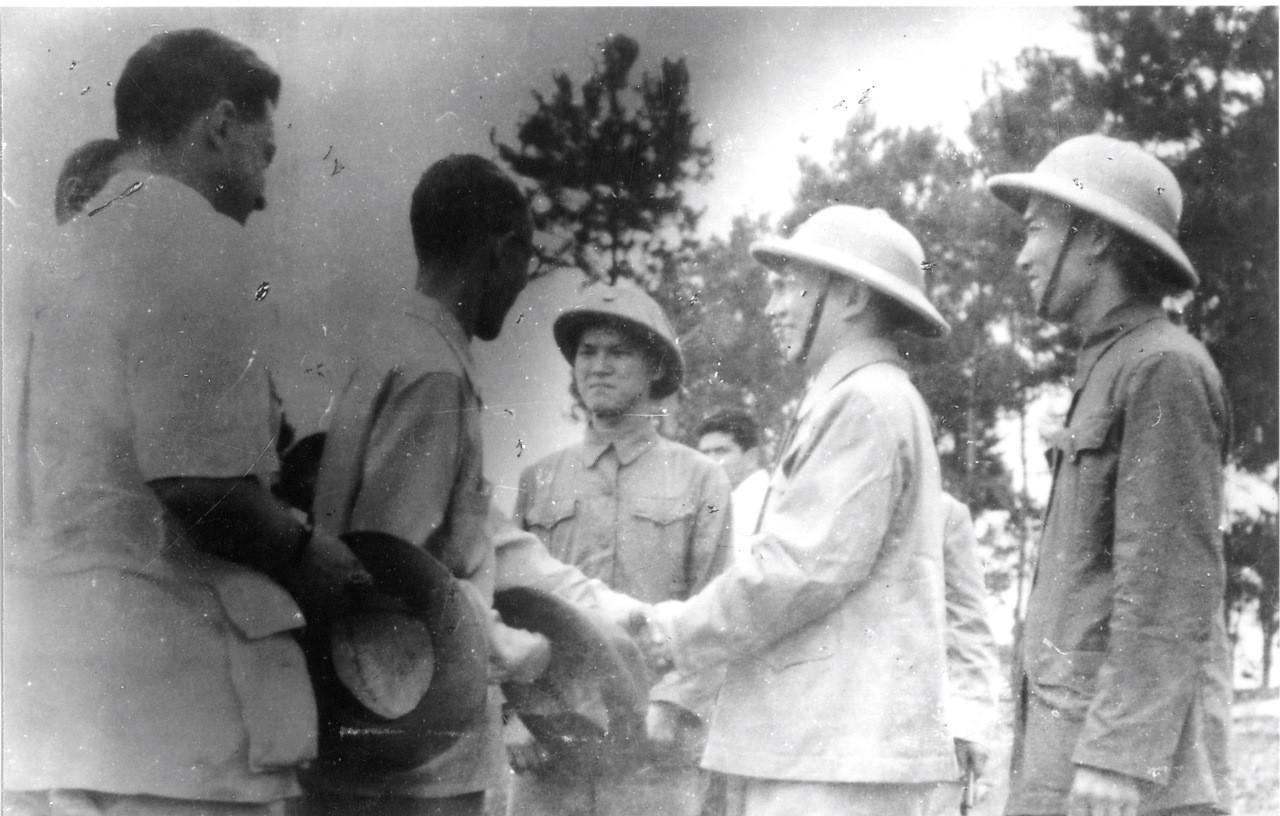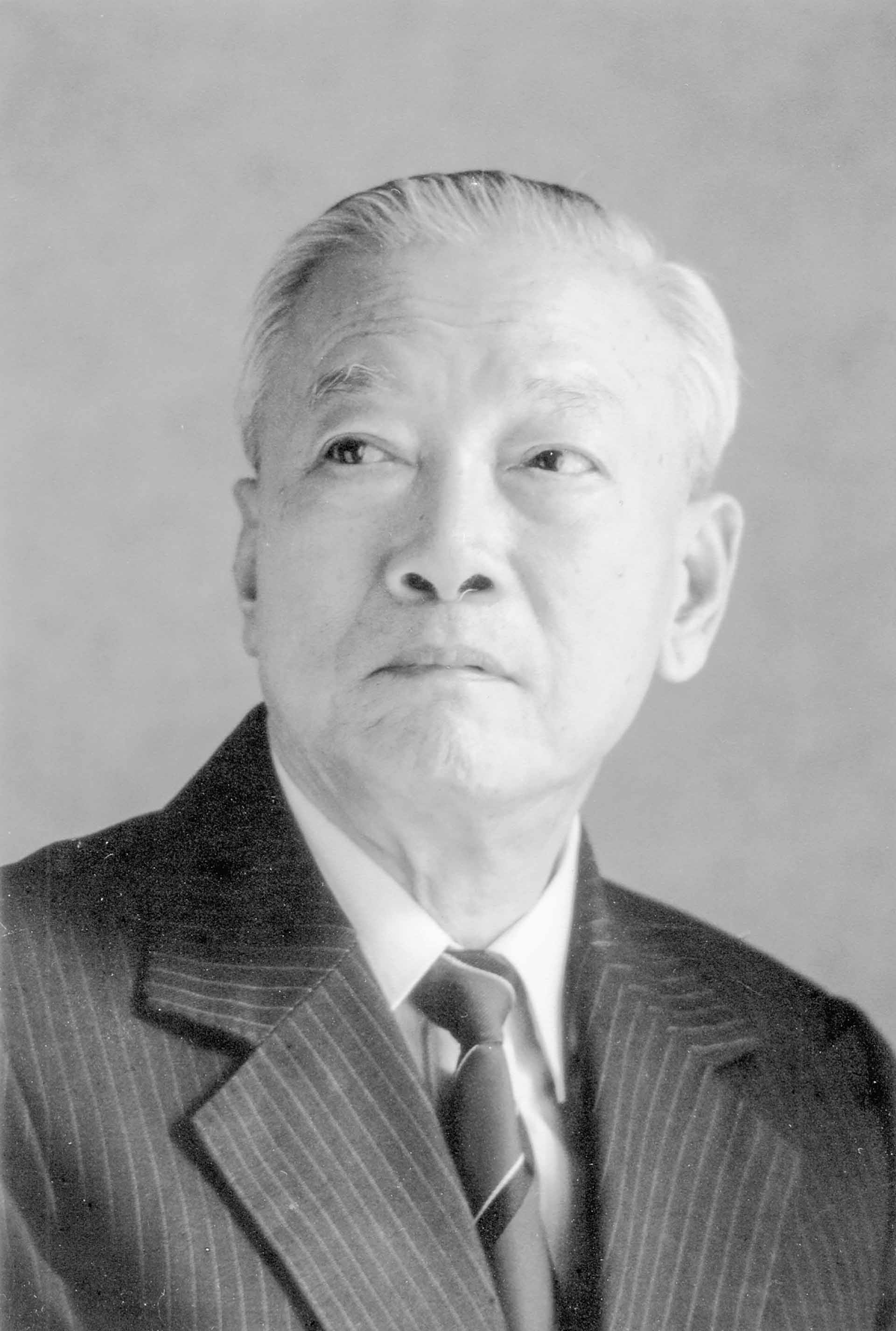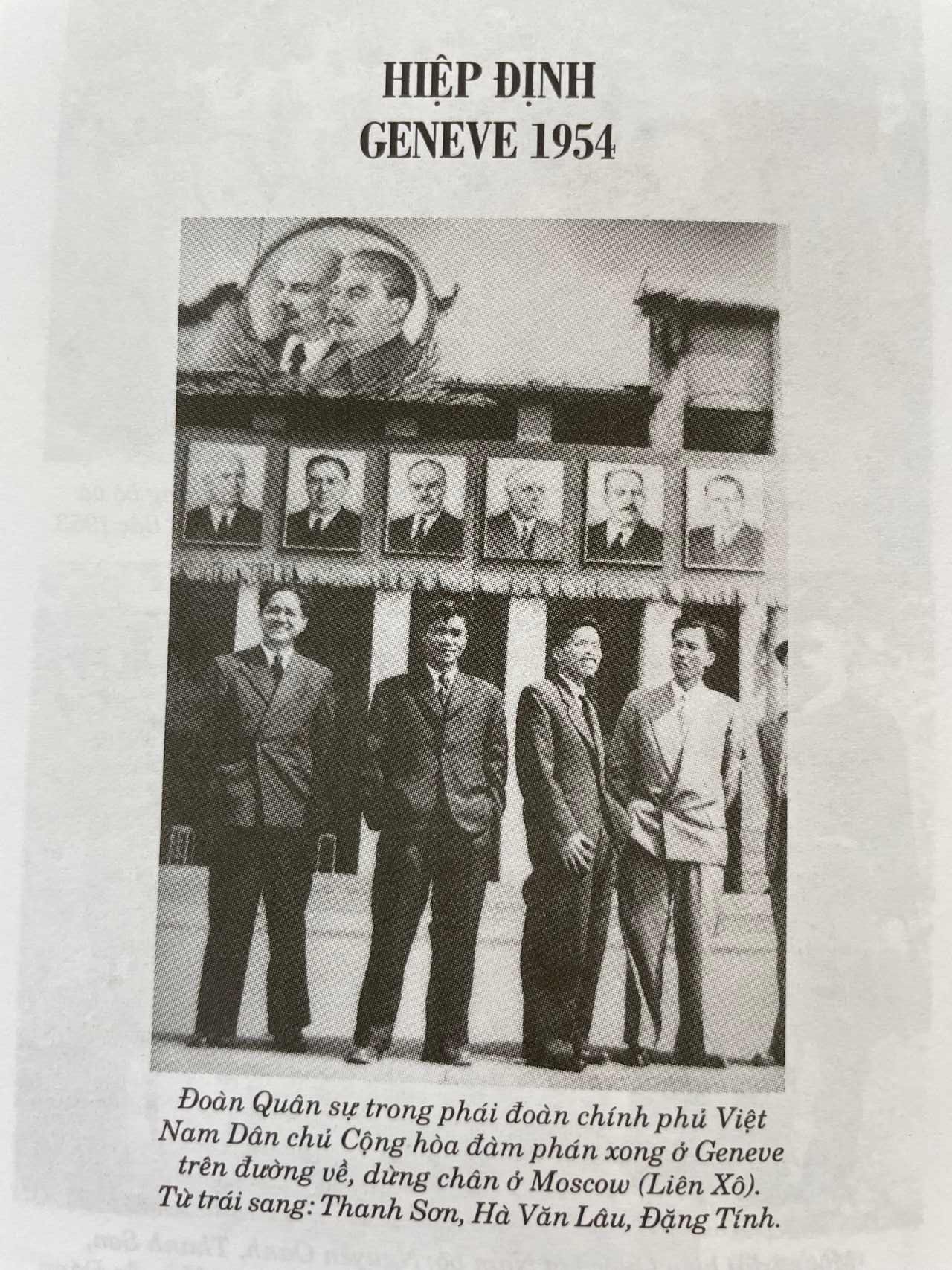
The story in Geneva told by a special military officer: Colonel Ha Van Lau
Latest
 |
| General Vo Nguyen Giap and Colonel Ha Van Lau shook hands to welcome the military delegation in the international division monitoring and controlling the armistice in Vietnam in 1954. (Source: VNA) |
In March 1954, while working as the Director-General of the Department of Operations, General Staff of the Vietnam People’s Army, Mr. Ha Van Lau received an assignment from Deputy Prime Minister Pham Van Dong. He was selected to be a member of the Democratic Republic of Vietnam’s delegation to attend the Geneva Conference on Indochina. In preparation for this new task, he diligently researched, gathered relevant documents and information, and assessed the military situation to support the delegation’s research.
Memorable days in Geneva
Sharing with The World & Vietnam Report on the 60th anniversary of the Geneva Accords in 2014, when he turned 96, Colonel Ha Van Lau shared that our delegation had a military team (including Deputy Minister Ta Quang Buu and himself). They are tasked with responsibilities such as researching and reporting to the delegation or Head of the delegation and engaging in separate meetings with the French military delegation to discuss ceasefire arrangements, troop movements, demarcation lines, and prisoner exchanges.
 |
| Diplomat - Colonel Ha Van Lau. |
Throughout the Geneva Conference, Mr. Ha Van Lau had the opportunity to stand shoulder to shoulder with esteemed colleagues such as the Head of Delegation, Deputy Prime Minister Pham Van Dong, Deputy Minister Ta Quang Buu in charge of military affairs, Tran Cong Tuong and Phan Anh as legal advisors, and Mr. Nguyen Thanh Le from Nhan Dan newspaper as the spokesperson.
Each person was responsible for specific issues at the Conference, so they often shared working time at the general sessions and held separate meetings as requested by the delegations. Since both Mr. Ha Van Lau and Deputy Minister Ta Quang Buu were responsible for military matters, they had the closest interactions and discussions. During military negotiations, they also had several private meetings with Brigadier General Delteil and Major General Brebisson from the French military delegation.
| “Colonel Ha Van Lau made significant contributions to the struggle to enforce the Geneva Accords. He is a talented military officer but also a seasoned diplomatic veteran with great thinking, rich experience and high credibility. From a military officer, after the Geneva Accords of 1954, he became a diplomat, stepping into the negotiations for the Paris Peace Accords in 1973... In my heart, Colonel Ha Van Lau is a mentor, an elder brother figure, a talented person both in military and diplomatic affairs, dignified and ethical, with numerous contributions in both the resistance wars against France and the United States, particularly in the field of military-diplomatic relations. He is a role model for future generations.” (Excerpt from the memoirs of Mr. Huynh Van Trinh, former Director-General of the Department of Movement, Central Committee for Overseas Vietnamese, Ministry of Foreign Affairs) |
Particularly, Deputy Minister Ta Quang Buu had previously been Mr. Ha Van Lau’s math teacher at the Phuc Xuan private school in Hue, so he regarded the Deputy Minister as an elder brother. He shared that: “Comrade Buu is a very pleasant person to work with. He always discussed things thoroughly with me before each meeting with the French military delegation. Ta Quang Buu and Tran Cong Tuong were responsible for the content of the Geneva Accords. I was responsible for the Vietnamese version. Therefore, the signing of the Accords was delayed for several hours because I discovered some missing sentences in the Vietnamese version that needed to be added, so we didn’t sign until 3:45 a.m. on July 21.”
Mr. Ha Van Lau also mentioned that this was our first time attending an international conference, which was not our initiative, so the delegation was small. China arranged all logistics matters, including transportation and accommodation. Even communications with home, sending telegrams reporting back home, all had to go through China for translation and transmission. As the person responsible for liaising with the Chinese delegation on this matter, he had to send telegrams to the head of the Chinese delegation, Zhou Enlai, even at midnight.
Fond memories with Mr. To
In the book Revolutionary Memories, published by Information and Communication Publishing House, Mr. Ha Van Lau revealed his gratitude for the opportunity to live and work alongside Mr. To (the affectionate nickname for Deputy Prime Minister Pham Van Dong) at the Geneva Conference.
On May 7, 1954, when we completely defeated the French enemy stronghold at Dien Bien Phu, the Geneva Conference commenced at 16:30 on May 8, 1954. Joyful of the victory, our delegation stayed up all night preparing for the meeting the next day. He recounted that: “Comrade To didn’t sleep either because with the liberation of Dien Bien Phu, he had to revise his speech from a different perspective. After finishing all the preparations, To paced back and forth in front of the porch. This way, we would enter the Conference with strength thanks to the military victories across battlefields in Vietnam and Indochina, especially Dien Bien Phu.”
Mr. Ha Van Lau remembered vividly that the next morning, before preparing to attend the opening session of the Conference, To gathered the entire delegation and told everyone: “We are in a position of strength while the enemy is in a position of defeat. But we must remain vigilant because it is a big country and it will not accept humiliation. Despite our significant victory on the battlefield, the conference will still be complex and challenging. Therefore, we should approach the conference as winners, but with humility, avoiding any arrogance or haughtiness.”
 |
| The Military Delegation of the DRV visited the Soviet Union in July 1954. (From left to right: Thanh Son, Ha Van Lau, Dang Tinh) |
The Colonel shared that, during the whole time at the Conference, he had learned a lot from Comrade To, from calmness, honesty, maturity to firmness, creativity, and subtlety. Mr. Ha Van Lau recounted: “Despite the delegates from the United States, France, and their puppets persisting with their fabricated accusations, unreasonable demands, and employing cunning tactics to pursue their own interests, but with sincere attitude, logical reasoning, and persuasive words, Comrade To’s speeches at the Conference managed to garner understanding and support from the French people and friends around the world. Comrade To was delighted to instruct me to inform all our victories, however small, to international friends, urging them to support us.”
When discussing the ceasefire, the Conference decided that representatives from the General Staffs of the two countries, Vietnam and France, must meet. Deputy Prime Minister Pham Van Dong promptly declared that the representatives of the People’s Army of Vietnam were already present. The media again had the opportunity to praise Vietnam’s goodwill and expose France’s fabrications aimed at prolonging the Conference.
One thing stuck in Mr. Ha Van Lau's memories: when the Deputy Prime Minister assigned him the task of meeting with the French representatives to discuss the resolution of the issue of French wounded soldiers at Dien Bien Phu. When France requested permission to send aircraft to Dien Bien Phu to evacuate the wounded soldiers, he immediately agreed. However, when he reported back to the Head of the delegation, his face turned serious, and he said: “It’s acceptable. But why rush into such an agreement?”. He immediately understood that he had made a significant mistake, but the Head of the delegation just said so and nothing more.
According to Mr. Ha Van Lau, although the Geneva Accords achieved success on the diplomatic front, Deputy Prime Minister Pham Van Dong was still unsatisfied because he felt that it did not adequately reflect our victories on the battlefield.
Later on, Pham Van Dong remarked, “The Geneva Accords of 1954 were just a temporary ceasefire in our nation’s 30-year war, allowing us time to prepare for the long-term struggle for peace and national reunification in the future.”
| Colonel Ha Van Lau, who was also a diplomat (1918-2016), was born in Sinh village, Phu Mau commune, Phu Vang district, Thua Thien - Hue province. He is known for his significant contributions on both the military and diplomatic fronts, in both of our nation’s resistance wars against French colonialism and the American imperialism. Regarding his military service, Colonel Ha Van Lau held various important positions, including Chief of Staff of the Nha Trang - Khanh Hoa Front, Commander of the Tran Cao Regiment, Chairman of the Thua Thien-Hue Resistance Committee, Commander of the Binh-Tri-Thien Front, Commander of the 325th Division, Director-General of Department of Operations, General Staff of the Vietnam People’s Army, He was promoted to the rank of Colonel in 1954 under exceptional circumstances, when he was heading to Switzerland to assist in military negotiations, serving as the aide to Deputy Minister of Defense Ta Quang Buu at the Geneva Conference. In terms of diplomacy, Colonel Ha Van Lau served as the Head of the Liaison Delegation of the General Staff for the Implementation of the Geneva Accords (July 20, 1954), Deputy Head of the Vietnamese Delegation to the Paris Conference (May 1968 - January 1970), Ambassador of Vietnam to Cuba (also concurrently accredited to Mexico and Jamaica), Ambassador - Head of the Permanent Mission of Vietnam to the United Nations, Ambassador of Vietnam to France (also concurrently accredited to Belgium, the Netherlands and Luxembourg), Deputy Minister of Foreign Affairs and Chair of Central Committee for Overseas Vietnamese. He was honored with numerous medals, and prestigious titles by the Party and the State. |













